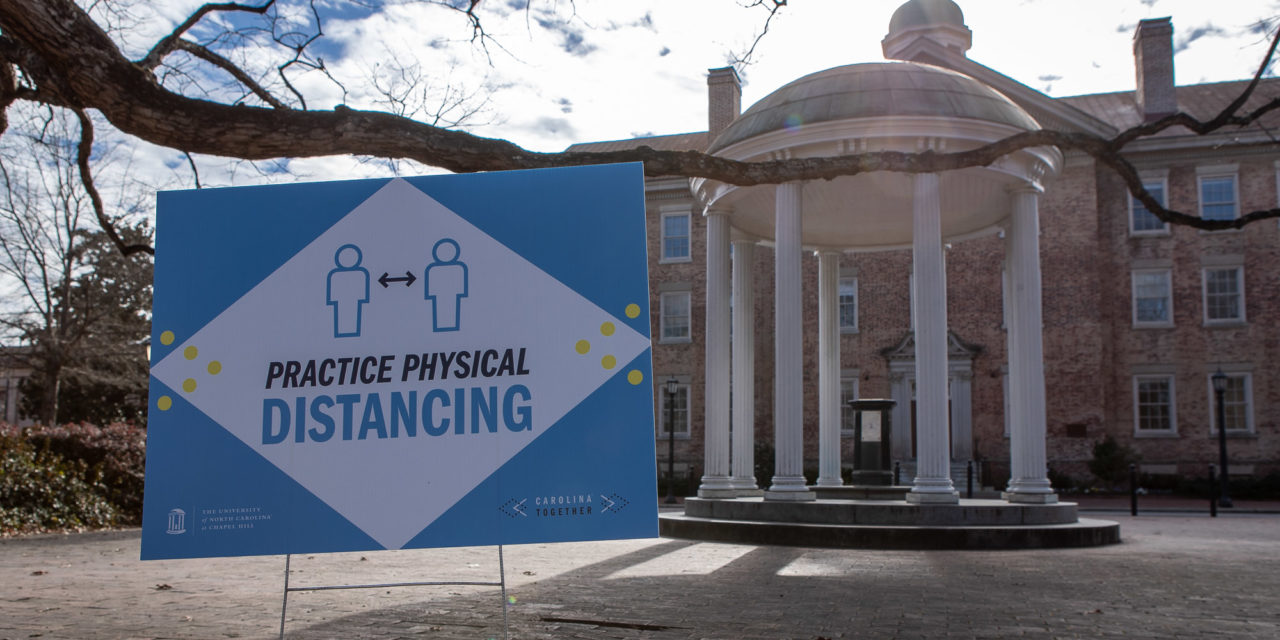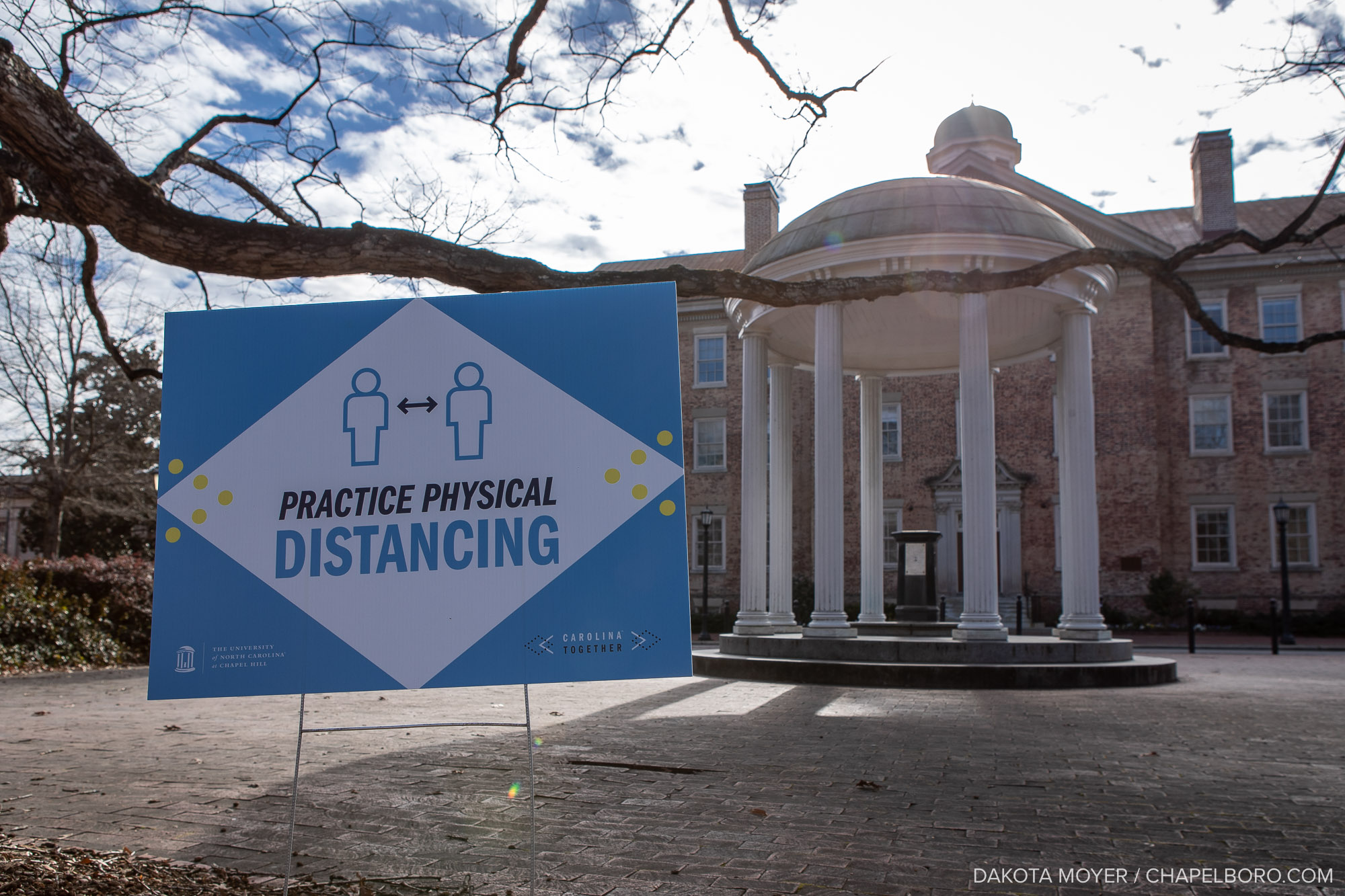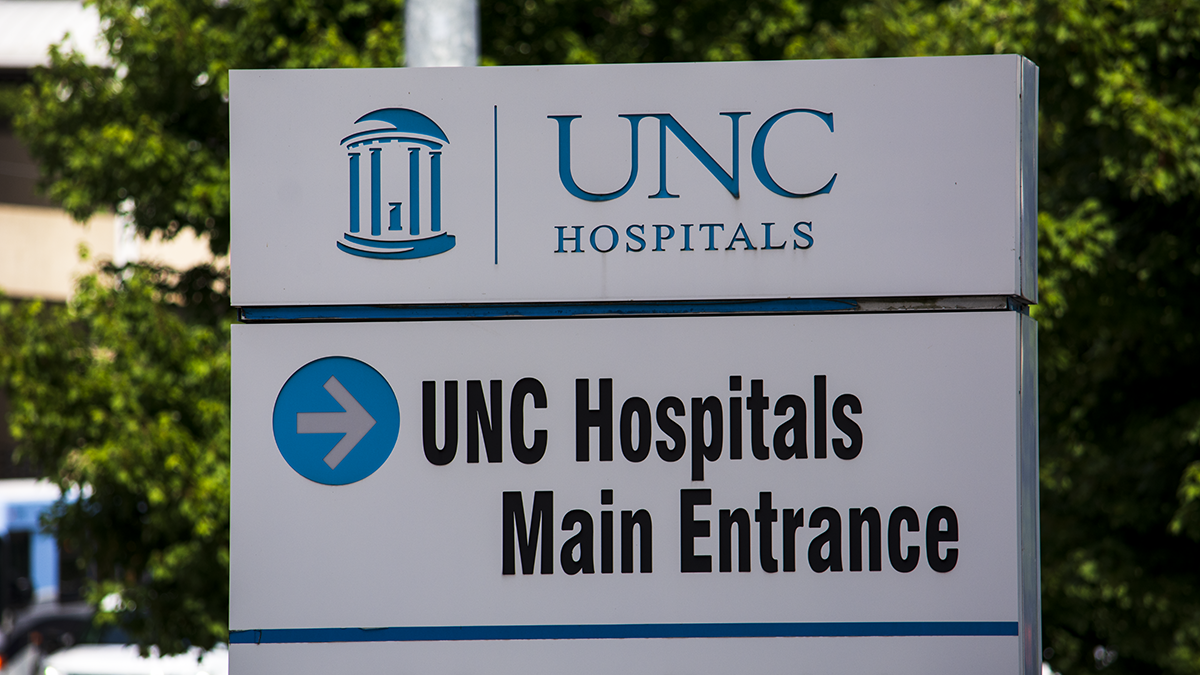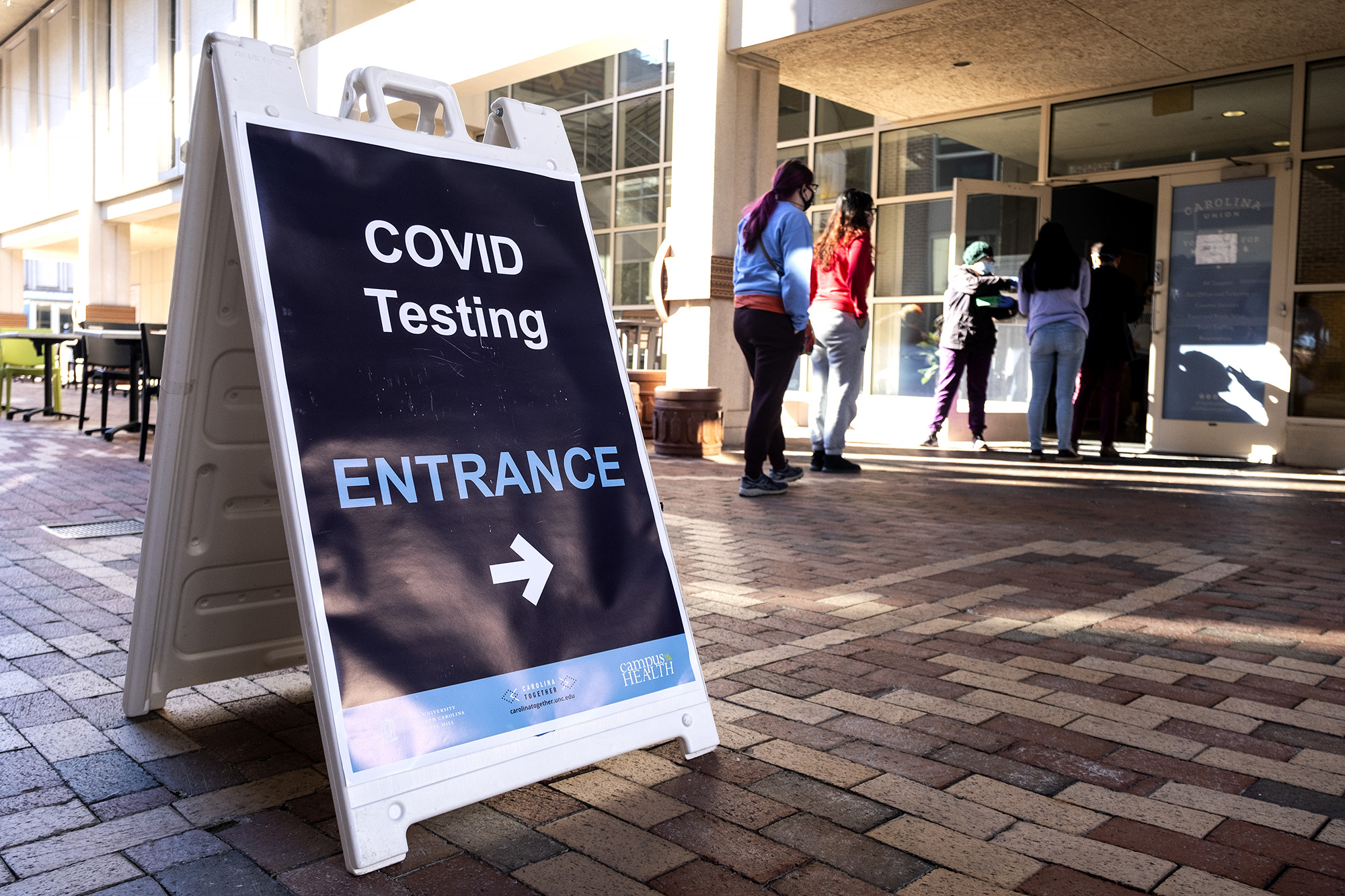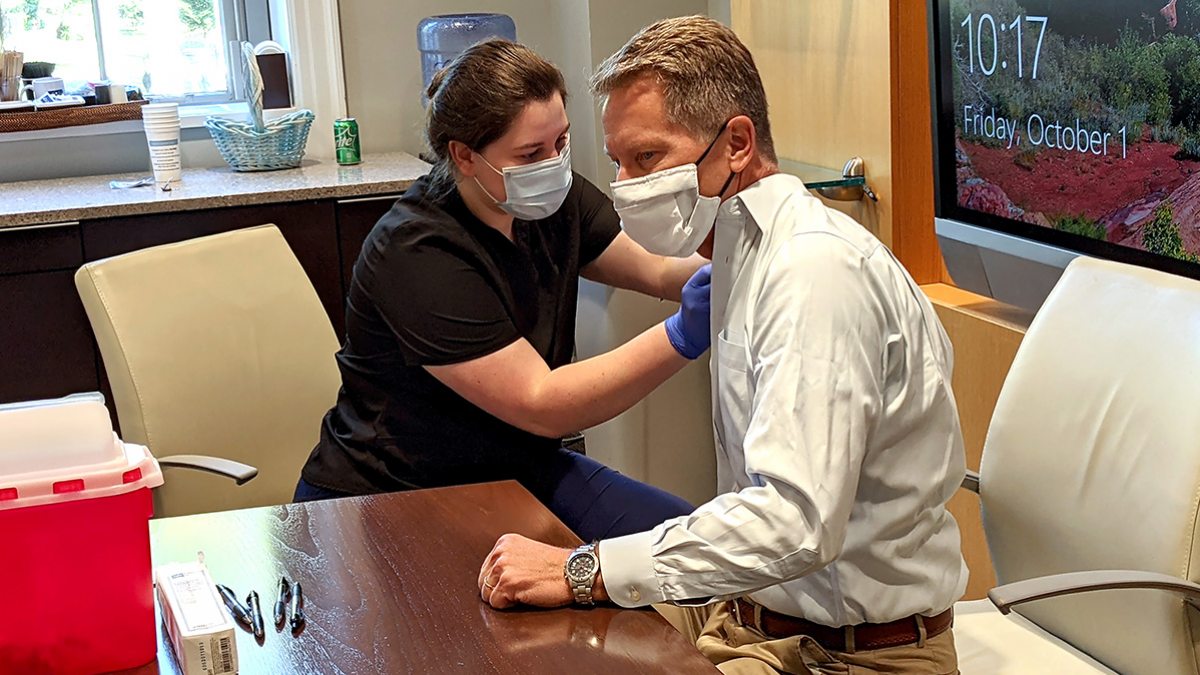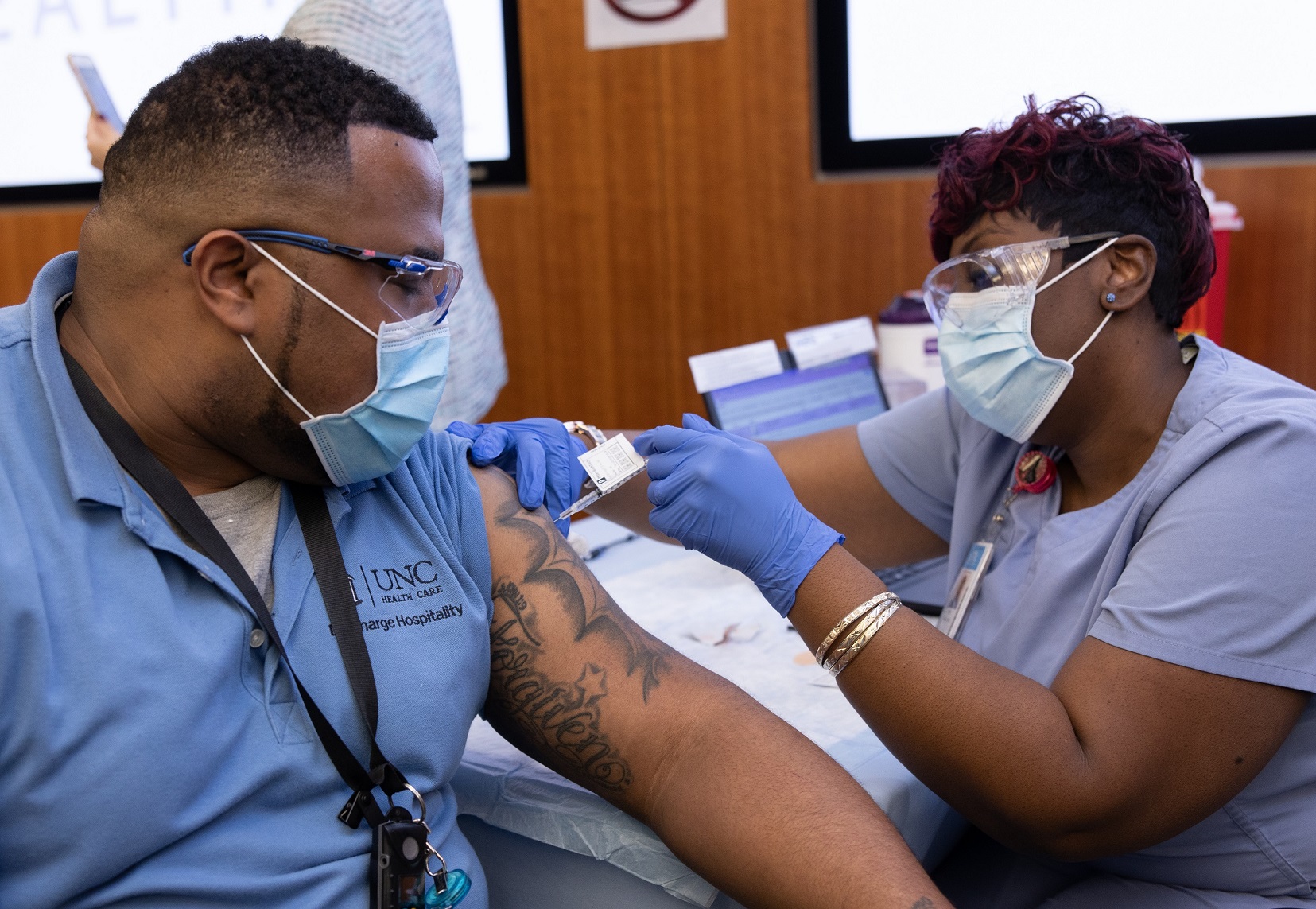UNC’s campus operations look a little different this fall semester with the presence of the COVID-19 vaccine and delta variant. Despite a large faculty petition, urging campus leadership to opt for four to six weeks of remote learning, students and staff returned to the classroom Wednesday.
For those who are unvaccinated or chose not to self-report their vaccination status, going back to class first meant a trip to an on-campus COVID-19 testing site.
In the first week of the fall 2020 semester, more than 130 students tested positive for the coronavirus – causing the university to move to a remote learning model. Now, from August 1 to August 16, 93 students and 35 employees have already tested positive for COVID-19, as reported by the Carolina Together Testing Program.
Dr. Amir Barzin, leader of the testing program, said when they first implemented campus-wide testing last spring, the university was in a really different environment.
“Our environment was that we were working with a virus that we didn’t have a vaccine for,” Barzin said. “So, their goal was to try to see what we could do in terms of being able to keep a campus community as safe as possible.”
While that goal hasn’t changed, Barzin said better prevention measures have been created since then, including the COVID-19 vaccine. He said students who have already been vaccinated get to be excluded from the testing program. This also includes university employees.
“In line with what the governor has put out, and also what the UNC System president has put out, we will do a faculty and staff rollout as well,” Barzin said. “So, everyone in the campus community will either be vaccinated and or participating in the testing program.”
Students who did not self-report or submit proof of vaccination for COVID-19 were required to complete a COVID test at a Carolina Together testing site within 24 hours of arrival to campus – which was not a requirement for move-in last fall.
Of those who have submitted their proof of vaccination, there are new concerns about falsified vaccination cards. Buying fake vaccination cards and submitting them to the university is an honor code violation that could result in disciplinary action up to suspension. Barzin thinks those cases, however, are few and far between.
“We trust our campus community and think that the usage of such falsified records is going to be extremely small,” Barzin said. “We’ve seen that in our own internal audits that we’ve done. So, we do really applaud the community for going out and getting vaccinated and trying to do their job at keeping our campus community safe.”
While the university does not have the authority to require proof of vaccination – as that power comes from the UNC System – it does have the power to enforce testing requirements for the unvaccinated. Barzin said this is especially important as more than 9,000 students return for on-campus living this fall.
“What we’re asking is very much an approach of what you can do to help protect yourself,” Barzin said. “So, there are two main factors that we know that help limit the spread of the disease. One is being vaccinated and two is doing the things that we largely saw a decrease in caseload over the past five or six months – which is doing the best that you can to mask in situations that are more congregated or busier.”
Regardless of vaccination status, students will be required to wear masks when in university buildings, including residence halls, except when in their assigned room or actively eating or drinking.
Students, staff, and faculty are also expected to comply with any requirement to wear a face mask issued by state and municipal authorities for any off-campus location. This includes all of Orange County, which enacted an indoor mask requirement August 11.
“It’s not that we want to go back and forth between saying vaccinated people need to wear a mask or they don’t need to wear a mask,” Barzin said. “It’s really [that] we’re looking at what information is in front of us and trying to adapt as best as possible to put out guidelines that make sure that we protect as many people as we can.”
Overall, Barzin said he thinks the university will “do well” as operations get back into full swing. He attributes this, in part, to Orange County’s high vaccination rate but also students’ willingness to comply with COVID regulations in order to have a more “normal” semester.
Currently, 76 percent of Orange County’s population is fully vaccinated as compared to the state’s 48 percent.
Learn more about the UNC’s COVID-19 campus operations here.
Chapelboro.com does not charge subscription fees. You can support local journalism and our mission to serve the community. Contribute today – every single dollar matters.

